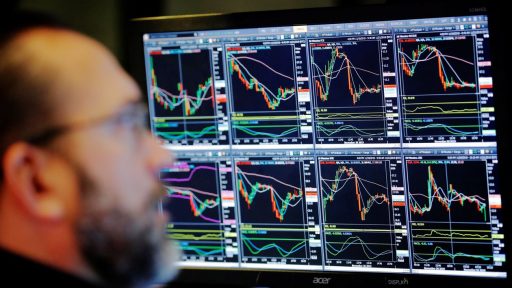- Home
- >
- Fundamental Analysis
- >
- Conditions for stock picking are improving

Conditions for stock picking are improving

After months of frequently trading together, shares of big U.S. companies have begun to diverge, more often rising or falling on fundamentals or company-specific news.
The average three-month rolling correlation among the stocks and sectors in the S&P 500 has been trending downward throughout November, according to data from Goldman Sachs. Among individual stocks, the measure dropped to 0.23 at the end of last week from 0.42 on Oct. 30.
That is below the five-year average of 0.30 and the lowest level since May 10—before stocks sold off sharply on worries about an escalating trade war.
Correlations measure how stocks move in relation to one another. A correlation of 1 would mean that stocks or sectors were moving perfectly together; a correlation of zero would show no relationship between their movements; and a correlation of -1 would mean they were moving in opposite directions.
Stocks tend to move together when investors are focused on macroeconomic factors like those that captivated their attention for much of the early autumn. But in recent weeks, trade tensions between the U.S. and China have somewhat eased, the Federal Reserve has indicated it is likely done cutting interest rates for now, and improving economic data has squashed fears of an imminent recession.
Those factors have helped push the S&P 500 up 2.4% in November and the three major stock indexes to a series of new highs. Much of the recent rally has been powered by economically sensitive stocks such as those of financial and industrial companies, suggesting that investors are gaining confidence about the health of the economy.
The easing tensions in the market have also allowed investors to refocus on comparing company fundamentals, opening a window for stock picking rather than just betting that the market will go up or down.
In recent years, active investing has lost ground to passive strategies in which funds try to match, rather than beat, the market. The amount of money in funds tracking broad U.S. equity indexes surpassed that in actively managed U.S. equity funds for the first time in August.
As individual stocks have begun to move more independently, correlations among the S&P 500’s 11 sectors—consumer discretionary, financials, information technology and the rest—have also declined. The average three-month rolling correlation among sectors has fallen to 0.56, from 0.81 on Oct. 30, according to Goldman data.
The sectors in the index haven’t all traded in the same direction since Oct. 9—the final day of a rare span during which they all closed up or down together in six of seven trading sessions. Among the catalysts during that period were a reassuring jobs report on Oct. 4 that helped assuage fears of a slowdown and a flare-up in tensions between the U.S. and China that threatened to undermine trade negotiations.
Source: WSJ
 Trader Georgi Bozhidarov
Trader Georgi Bozhidarov Read more:
If you think, we can improve that section,
please comment. Your oppinion is imortant for us.











